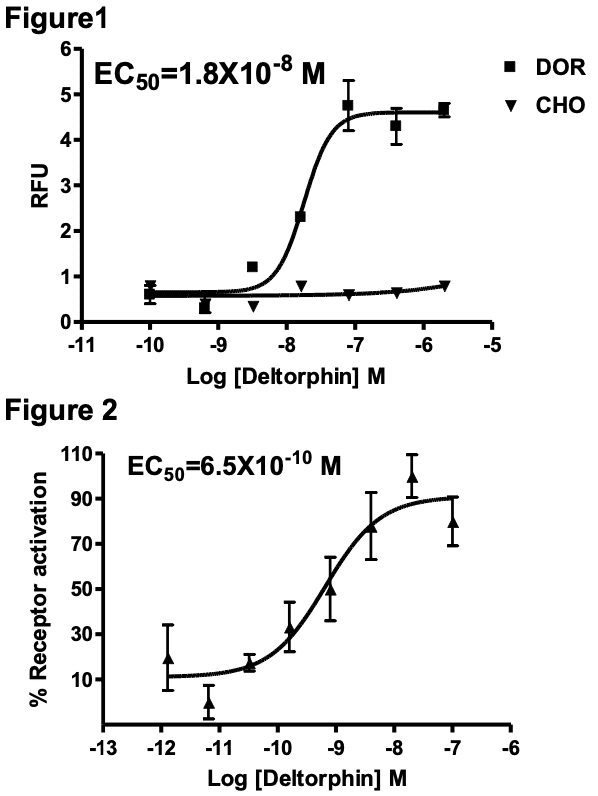Product Information
Catalog Number:
C1351
Lot Number:
C1351-120710
Quantity:
1 vial (2 x 106) frozen cells
Freeze Medium:
Sigma Freezing Medium (C-6164)
Host cell:
CHO dhfr-
Transfection:
Full-length rat delta Opioid cDNA (GenBank Accession Number NM_012617)
Recommended Storage:
Liquid nitrogen upon receiving
Propagation Medium: Alpha-MEM, 10% FBS, 800 µg/mL G418
Stability:
Stable after two months of continuous growth
Data Sheet
Background: Delta opioid receptor (DOR) inhibits neurotransmitter release by reducing calcium ion currents and increasing potassium ion conductance. In rats, morphine tolerance is associated with DOR-mediated activation of cortical CCKergic systems. There are indications that some DOR antagonists produce potent antitussive effects and may be considered as candidates of antitussive drugs. In contrast, some DOR agonists have shown antinociceptive, seizuregenic and convulsive properties, implicating a role for the receptor in depression. Clinical experiments have demonstrated that exogenously administered delta opioid peptides had antidepressant activity, suggesting that the receptor may provide a new therapeutic target for treating depression.
Application: Functional assays

Figure 1. Dose-dependent stimulation of calcium flux upon treatment with ligand, measured with MultiscreenTM Calcium 1.0 No Wash Assay Kit (Multispan MSCA01). Figure 2. Dose-dependent inhibition of forskolin-stimulated intracellular cAMP level upon treatment with ligand, measured with MultiscreenTM TR-FRET cAMP 1.0 No Wash Assay Kit (Multispan MSCM01).
References:
Becker et al. (2000) Delta-opioid receptor-mediated increase in cortical extracellular levels of cholecystokinin-like material by subchronic morphine in rats.Neuropharmacology 39:161-171.
Kamei (2002) Delta-opioid receptor antagonists as a new concept for central acting antitussive drugs. Pulm Pharmacol Ther 15:235-240.
Broom et al. (2002) Behavioral effects of delta-opioid receptor agonists: potential antidepressants? Jpn J Pharmacol 90:1-6.
